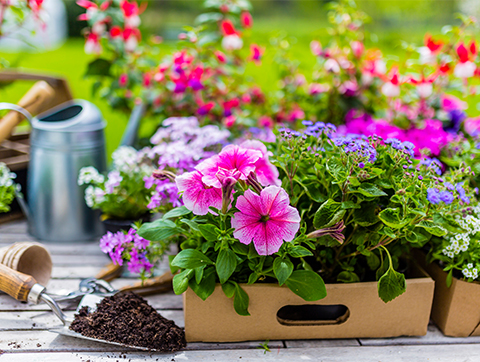Spring weather brings picnics and barbecues, which require proper food storage and handling. When bacteria, parasites or viruses contaminate food, food poisoning can occur.
- Food poisoning symptoms include vomiting and/or diarrhea. These usually occur 1-12 hours after eating.
- In the case of food poisoning, drink liquids to prevent dehydration.
- Mild cases of food poisoning may be managed at home, but more severe cases require medical attention.
Tips to Prevent Food Poisoning
- Place frozen foods in the freezer and refrigerated foods in the refrigerator as soon as possible after shopping.
- Set your refrigerator at 40ºF, the freezer at 0ºF. If you don’t have a thermometer, keep your refrigerator as cold as possible without freezing your milk or lettuce.
- Thaw and marinate foods in the refrigerator, not on the counter. Don’t reuse marinade that has come in contact with raw meat.
- Don’t buy canned goods that are bulging, dented or rusted.
- Refrigerate food within 2 hours of cooking.
- When picnicking, keep hot foods hot and cold foods cold.
- Wash hands in hot, soapy water before, and frequently during, food preparation.
- Wash all fruits and vegetables before eating.
- Use separate plates, utensils and cutting boards for raw and cooked foods to avoid contamination.
- Wash cutting boards and utensils in hot, soapy water or a 10% bleach solution after use.
- Thoroughly cook all meats, poultry and seafood. When in doubt, use a meat thermometer to check internal temperatures.
- Visit our Food Poisoning page for additional information
